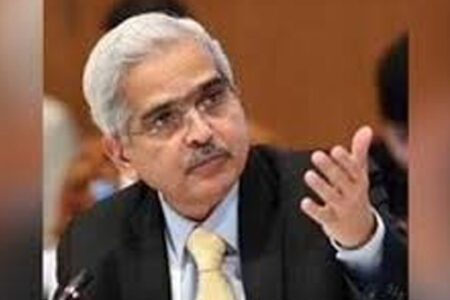To use a cliché, September 25 could become a red-letter day for India’s old private sector banking industry. On that day, at the annual general meeting (AGM) of 94-year-old Lakshmi Vilas Bank Ltd (LVB), its shareholders voted out the directors they felt responsible for the sorry state of affairs in the bank. They did not even spare the bank’s managing director and chief executive, S Sundar.
Ahead of the AGM, held on a Friday, proxy advisory firm Institutional Investor Advisory Services had warned the shareholders about the (mis)governance of the bank. It had, in fact, recommended against voting some of the existing directors back to the bank’s board.
The Reserve Bank of India (RBI) stepped in quickly and a three-member committee of directors has been set up to run the weakest link in Indian banking industry for now. The committee, headed by Meeta Makhan, has Shakti Sinha and Satish Kumar Kalra – all independent directors.
Going by the bank’s statement, it does not have any asset-liability mismatch and has been doing well in fulfilling its commitments to depositors, bond-holders and creditors. “All the existing employees of the bank will continue to be in full service as usual, and remain committed to serve customers,” it has said.
Coming from a near-insolvent bank, it should be music to the ears of the regulator. LVB’s Tier 1 capital adequacy ratio turned negative 0.88 per cent as on June 30, 2020, against the minimum requirement of 8.875 per cent. It has been posting losses for the past 10 quarters even as the June quarter loss shrank to Rs112.28 crore from Rs237.25 crore a year ago. Its deposit portfolio has been declining and a little over one-fourth of its loan assets have turned bad. In March 2017, its bad loans were just 2.7 per cent. The going was great till the RBI decided to conduct the “asset quality review” of Indian banks in 2015-16.
LVB has dug its own grave with its obsession for growth, chasing corporate clients and giving up its original mandate of meeting the needs of local trade and businesses. When the RBI put it under its prompt corrective action net in September 2019, restraining the bank from giving fresh loans, a brave LVB had said it would make every effort to improve its financial health. Around the same time, when its merger plan with Indiabulls Housing Finance Company Ltd went kaput, it put up an even braver front and said, “This brings an end to recent uncertainty… the bank will continue to work towards raising capital…” Till now, there is no sign of fresh capital.
What exactly happened on that fateful Friday? The appointments of four new and a few old directors (renewal of directorship) were put to vote at the AGM for ratification. In normal circumstances, it’s just a formality. But that was not the case with LVB. All old, non-independent directors were thrown out. Even among the new set, one non-independent director was shown the door. Overall, only three out of ten could make it.
Sundar apart, non-independent directors N Saiprasad, Raghuraj Gujjar and K R Pradeep were thrown out. Among independent directors, B K Manjunath, Gorinka Jaganmohan Rao and Y N Lakshminarayana Murthy could not make it. Those who breast the tape are Sinha, Karla and Makhan – all independent directors and members of the new committee that is running the bank.
The voting pattern at the AGM gives us a sense of the behind-the-scenes stories. For instance, 100 per cent of the promoters voted at the AGM but 19 per cent of them voted against certain resolutions. Of the institutional shareholders, only 40 per cent voted (Indiabulls Housing, which holds 4.99 per cent stake in the bank and wanted to merge itself with it in 2019, abstained from voting) and at least 90 per cent of them voted against the resolutions.
The participation of the public shareholders was even less – around 32 per cent and 68 per cent of those who had voted were against the resolutions. All these figures signal this is not yet another instance of shareholders’ activism — the split is wide open. The shareholders were determined to throw out the promoters’ representatives masquerading as independent directors. Were the promoters not aware of the challenge or did they overestimate their hold over the floating stock of the bank?
As of June 2020, the bank has a long list of promoters. Some of the individuals are K R Pradeep, Anuradha Pradeep, M P Shyam, G Sudhakara Gupta and N Malayalaramamirtham. Their holdings vary between a few thousand shares and a 2 per cent stake. Malayalaramamirtham is a descendent of the original promoters — a group of seven businessmen who had set up the bank on the banks of the river Amravathi in 1926 under the leadership of VSN Ramalinga Chettiar to cater to the financial needs of people in and around Karur who were occupied in trading businesses, industry and agriculture. The rest joined in later. At least one of the promoters has voted against the resolutions at the AGM.
What next for LVB? Last week, credit rating agency Brickwork Ratings downgraded its unsecured, redeemable, non-convertible subordinated lower Tier II bonds – Series VII (Option B) rating from BWR BB+ (credit watch with developing implications) to BWR B+ (credit watch with negative implications). By a conservative estimate, it needs at least Rs1,500 crore to survive.
LVB has a good franchise of 570 branches, 85 per cent of which are in South India (about half of that in Tamil Nadu), and 1.75 million retail customers. A wrong business plan, interfering promoters, weak board and lack of continuity at the top have made LVB a stretcher case.
Till now, the bank had been approaching investors to raise capital but the fear of hidden bad loans and possible interference of the board/promoters in operations kept them at bay. With the mass ouster of not-so-independent directors, will things change? It’s difficult to say. Is it possible that a couple of institutional investors might be dreaming of owning the management control of the bank? Have they played a role in the AGM coup? Will they be generous enough to cooperate and allow an outsider to take over LVB and resuscitate it? We need to watch out for that.



